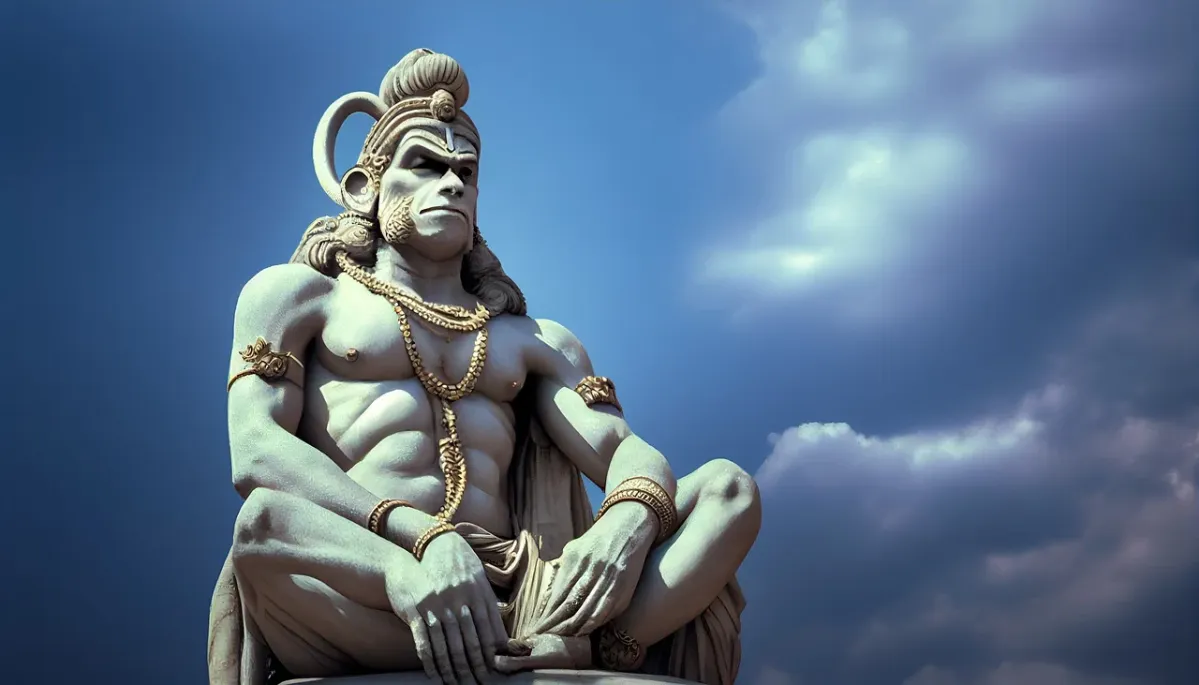
Thailand has recently made headlines with its decision to appoint Lord Hanuman, the revered Hindu deity, as the official mascot of the forthcoming Asian Athletics Championship. This choice is a celebration of Thailand’s vibrant cultural heritage and its deep-rooted connections with India. Lord Hanuman, known for his strength, agility, and devotion, embodies the spirit of athleticism and serves as a unifying symbol for participants and spectators alike. The selection of Lord Hanuman as the official mascot has sparked discussions surrounding the intersection of sports, culture, and religion, providing an opportunity to explore his significance in both Thai and Indian cultures.
Lord Hanuman holds a prominent place in Hindu mythology as a revered deity. Renowned for his unwavering devotion, boundless strength, and exceptional agility, he played a pivotal role in the epic Ramayana, a revered ancient Indian scripture. Hanuman’s extraordinary abilities, including his ability to leap great distances, established him as an iconic figure associated with swiftness and agility.
Lord Hanuman in Thai Culture :
The influence of Hinduism in Thailand extends back several centuries, and Lord Hanuman has become an integral part of Thai culture. Referred to as “Hanuman Chalong,” he is depicted in various forms throughout the country. Thai classical dance, Ramakien, often showcases portrayals of Hanuman, emphasizing his iconic leaps and heroic exploits. The revered Monkey Temple in Lopburi province is home to a significant population of monkeys believed to be descendants of Hanuman.
The Significance of Lord Hanuman as Mascot :
Designating Lord Hanuman as the official mascot of the Asian Athletics Championship carries immense cultural and symbolic significance. As a symbol of strength, agility, and unwavering determination, Hanuman resonates with the essence of athletics, inspiring athletes to surpass their limits and overcome obstacles. Furthermore, Hanuman’s divine presence serves to reinforce the harmonious relationship between Thailand and India, strengthening the bond between the two nations.
Promoting Cultural Exchange and Understanding :
Thailand’s selection of Lord Hanuman as the official mascot aims to foster cultural exchange and mutual understanding among the participating nations. The Asian Athletics Championship provides a platform for athletes from diverse backgrounds to converge and celebrate their shared passion for sports. By integrating Lord Hanuman into the championship, the event becomes an even greater celebration, enabling spectators and participants to gain insight into Thai and Indian cultures, their shared mythological heritage, and the values epitomized by Lord Hanuman.
Criticism and Controversy :
As is common with decisions involving religious symbolism, the choice of Lord Hanuman as the mascot has faced some criticism and generated controversy. Opponents argue that using a religious figure as a sporting symbol may infringe upon the principle of secularism. Concerns have been raised about potential exclusion of participants and spectators who do not identify with Hinduism or hold differing beliefs. However, proponents of the decision emphasize that the intention is to celebrate cultural diversity and foster understanding rather than impose religious beliefs.
Thailand’s decision to appoint Lord Hanuman as the official mascot of the Asian Athletics Championship highlights the country’s rich cultural heritage and its enduring cultural ties with India. This selection provides a unique opportunity to explore the significance of Lord Hanuman in Thai and Indian cultures while promoting cultural exchange and understanding among participating nations. As athletes from across Asia gather to compete, the presence of Lord Hanuman as a unifying symbol will undoubtedly inspire participants to display their strength, agility, and dedication, encapsulating the true spirit of the sporting event.
Read More: International Affairs